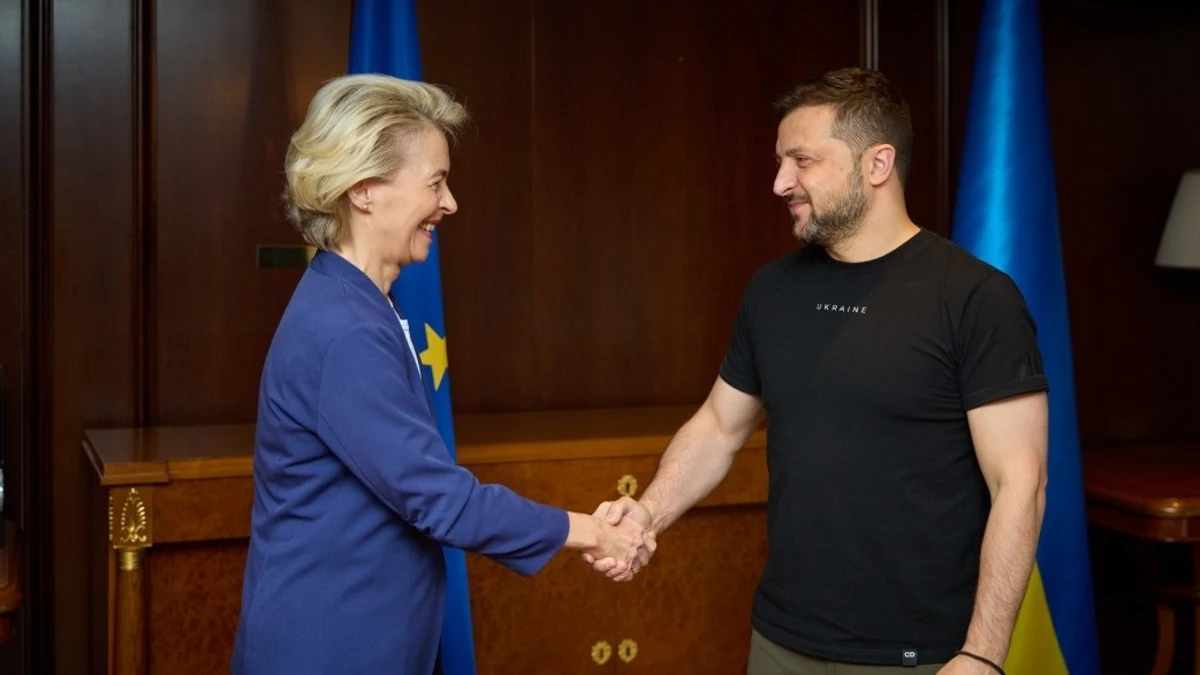
The leaders of the European Union agreed this Thursday open accession negotiations with Ukraine and Moldovathus circumventing the blockade of Hungary, which arrived at the meeting rejecting military and financial support measures for kyiv, in addition to the decision itself to open negotiations.
In a message on social networks, the president of the European Council, Charles Michel, has confirmed the ‘green light’ for the accession talks of Ukraine and Moldova, while Georgia has received the status of candidate to enter the bloc. Community sources explain that finally the Hungarian Prime Minister, Viktor Orban, has not opposed the step with Ukraine and Moldova and no member state has blocked the decision.
The president of Ukraine, Volodymyr Zelensky, has described this step as a “victory for Ukraine” and “for all of Europe”. “A victory that motivates, inspires and strengthens,” she has written on her social networks.
Regarding Bosnia and Herzegovina, European leaders have agreed to open negotiations once there is the necessary degree of compliance with the integration criteria set by the European Commission. The summit before Christmas was called to take the step with Ukraine and Moldova.
Both countries applied to join the EU following the Russian attack on Ukraine in February 2022. kyiv and Chisinau received candidate status just three months later in June, when he set some priority reforms to give the green light to the accession negotiations. Several European leaders have called the summit historic due to the depth of the decisions that were on the table.
Keys to Orban’s ‘turn’
The Hungarian Prime Minister, Viktor Orban, has been absent from the vote after a morning of negotiations with other EU leaders to avoid frustrating the decision to open accession negotiations with Ukraine and Moldova, a step that the other 26 States supported. members, in a maneuver agreed with the rest of the heads of State and Government.
Community sources explain that the ‘green light’ to open negotiations with Ukraine and Moldova was finally taken without the Hungarian Prime Minister, who “momentarily” left the room. This unprecedented tactic has been “previously agreed upon and is constructive,” the sources add.
In this way, the EU has saved the unanimity required to make the decision, while Budapest insists that he has not supported a decision that he has been criticizing for weeks and that threatened to block the summit. “Hungary does not want to participate in a bad decision,” Orbán explained in a video on social networks.
Finally, the summit has forged the commitment to open negotiations with kyiv, thus following the recommendation of the European Commission that pointed in this direction. Until the very beginning of the summit, Orbán insisted on his blocking position, alleging the reforms that the European Commission placed as priorities. “We have set seven conditions and The Commission’s own assessment is that three of the seven have not been completedso it makes no sense for us to negotiate,” argued the Magyar leader upon his arrival at the meeting of European leaders.
The EU agreement thus comes after a long negotiation process between the leaders of the supranational organization. This same Thursday morning, some European leaders called for unity to give the green light to open accession negotiations with Ukraine, in the face of the veto posed by the Hungarian Prime Minister, Viktor Orbán. Upon arrival at the summit, German Chancellor Olaf Scholz argued that it is a “necessary debate” and stressed the importance of advancing the enlargement processes of Ukraine, but also of Moldova and the Balkans, after the bloc confirmed its commitment to European integration.
Before starting the summit and for almost an hour, Scholz and the French president, Emmanuel Macron, They have met with Orbán, which has finally overcome the blockade of Ukraine by also opening negotiations with Moldova.
The relationship between both powers transcends the borders of the EU. The Hungarian Foreign Minister, Péter Szijjártó, urged Moldova in May of this year not to lose momentum on its path towards accession to the European Union after having received the status of candidate country last year, and promised that former Soviet republic to lend all possible support.
Szijjártó already assured then that “in the future Hungary will continue to provide all available support to Moldova so that its integration efforts are successful” and reiterated that, although Moldova and Hungary are not neighbors, the two countries feel close and both nations are located on the eastern border of the EU.
Source: Lasexta
Ricardo is a renowned author and journalist, known for his exceptional writing on top-news stories. He currently works as a writer at the 247 News Agency, where he is known for his ability to deliver breaking news and insightful analysis on the most pressing issues of the day.












